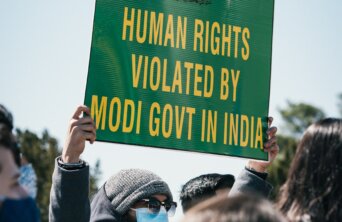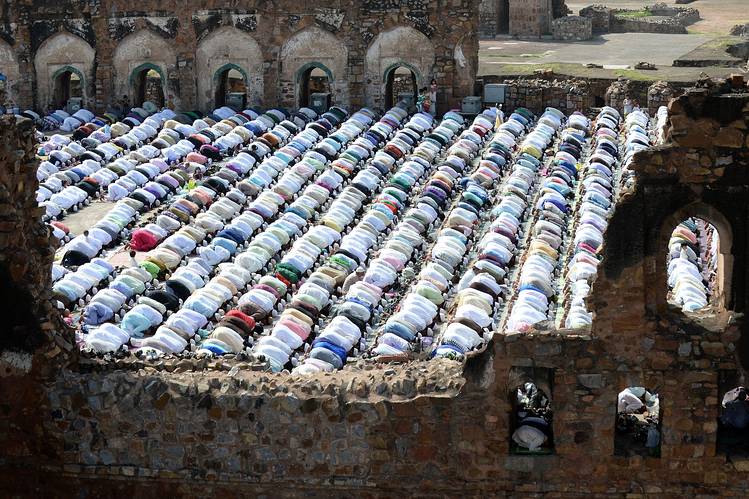- About
- Topics
- Picks
- Audio
- Story
- In-Depth
- Opinion
- News
- Donate
-
Signup for our newsletterOur Editors' Best Picks.Send
Read, Debate: Engage.

As India approaches its parliamentary election scheduled for 2024, the government led by Prime Minister Narendra Modi and his Bharatiya Janata Party (BJP) is entering the final year of its second term. There is a growing concern regarding the current state of democracy within the nation. Domestic and international evaluations of the government's performance point to alarming trends in democratic erosion, including heightened polarisation, increased censorship, media suppression, compromised electoral integrity, and a shrinking space for dissent and critical voices in the country.
Since coming to power in 2014 and again in 2019, the BJP-led government has faced criticism, with several reports highlighting India's poor performance on many democratic indices.
This year, political advocacy Freedom House maintained India's position as a "Partly Free" nation. Though nearly a decade into Modi's leadership, India has become an increasingly illiberal democracy. Experts emphasise that this assault on democracy is deeply rooted in ideology, with the BJP being an electoral extension of the Rashtriya Swayamsevak Sangh (RSS), a radical Hindu nationalist organisation that Modi has been associated with since childhood. Consequently, there has been a sharp rise in attacks on religious minorities, systematically exploiting laws and policies to discriminate against Muslims and Christians.
The Varieties of Democracy (V-Dem) project - an international effort to produce indicators of democracy for all countries - classified India as an "electoral autocracy" in its 2023 report. Moreover, the Economist Intelligence Unit categorised the nation as a "flawed democracy," highlighting the nation's democratic decline.
The shift in categorisation saw 1.4 billion people classified as autocratic, and the percentage of people living in free countries halved.
The anti-democratic tendencies under Modi's regime have intensified over time. This year alone, the Indian government expelled the opposition party leader, Rahul Gandhi, from parliament following a defamation conviction about a joke about the prime minister. The government also took control of one of the few remaining independent television channels, significantly dropping India's 2023 World Press Freedom Index ranking from 150 to 161 out of 180 countries.
Despite increasing criticism, what remains interesting is Modi's sustained popularity among the citizens, with approval ratings consistently exceeding seventy per cent. In July this year, over two dozen opposition parties in India put aside their differences and united to contest the 2024 national elections. Their goal is to prevent the ruling Hindu nationalist BJP from progressing further.
All eyes are now on the 28-party bloc, named the Indian National Developmental Inclusive Alliance (INDIA), which has promised a positive change from the declining democratic and secular values of the nation.
Image by Gayatri Malhotra.
